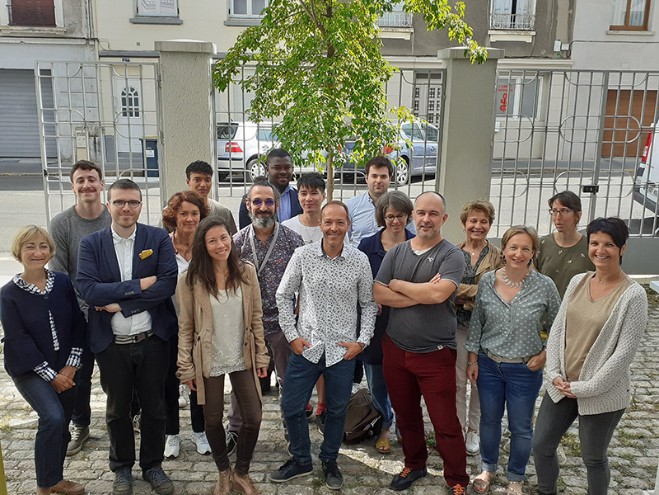THE SAINT-ÉTIENNE SCHOOL OF ECONOMICS
The Saint-Étienne School of Economics at Jean Monnet University aims to train decision-makers capable of addressing current and future economic challenges. Economic decision-making is being revolutionised by big data and artificial intelligence. Future economists need to be able not only to use these new tools but, more importantly, to think about how they should be used. This means examining the ethical, environmental, social and equity issues involved.
Tackling current and future economic challenges
The Saint-Étienne School of Economics (SE²) offers courses in the economic sciences informed by cutting-edge international research in fields such as artificial intelligence, data, and public decision-making, and in the design and evaluation of public policies and local economic development.
To train the economists of the future, we also introduce our students to related human and social science disciplines, especially geography, computer science, mathematics, data science, management, and political and legal sciences.
We aim to train students for decision-making support jobs in a variety of sectors including IT, the environment, health, and education, where they will need to be able to analyse problems, assess the impact of economic and social policies, and design decision-making solutions.
Working in close collaboration with the GATE CNRS research unit, one of France’s top-ranking economics research centres, SE² draws on more than twenty years of teaching experience and the close links it has established with the private and public sectors and across the academic world.
A culture designed to maximise student success
The Saint-Étienne School of Economics (SE2) integrates a strong international dimension from the first year of its bachelor’s programme (classes taught in English, international partnerships) as well as offering a wide range of possibilities for studying abroad. We also aim to achieve a balance between theory and practice. Coursework includes case studies as well as individual and group projects, enabling students to acquire know-how, methods and soft skills.
Limited class sizes and close student-teacher relations mean students quickly develop their capacity to assess situations and problems and learn to work in multidisciplinary teams.
Programmes ranging from bachelor to PhD
The Bachelor of Economics takes a modern approach to economics, offering multidisciplinary training in mathematics, statistics and computer science, combined with courses in management, law, and political science. Students can follow the standard track or the international track. The curriculum allows them to gradually choose their third-year specialisation.
The three master’s programmes – in Regional Development, Data Science and Innovation Management and Economics, Data and Decision Science – focus on economics and related sciences. The core curriculum in the first year includes microeconomics, macroeconomics, econometrics, policy analysis, data analysis, and project management, focusing on specialised skills that are highly sought-after by employers.
In partnership with Sciences Po Lyon, the Saint-Étienne School of Economics also offers a Political Science and Economics University Diploma. This allows students to follow a selection of the courses given as part of Sciences Po Lyon’s undergraduate programme.
A PhD is essential for those wishing to pursue a career in academia as well as in major national or international bodies.
Download the brochure of Saint-Etienne School of Economics (.pdf ; 6MO)

The team at the Saint-Étienne School of Economics

 Université Jean Monnet
Université Jean Monnet